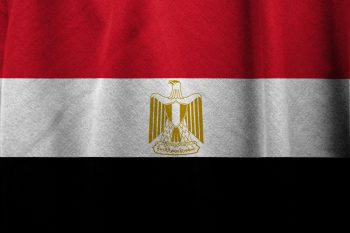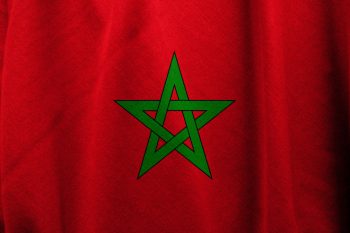Letter of the Week (م) meem Posted by yasmine on Jul 15, 2020 in Uncategorized
Moving on to our twenty fourth letter of the Arabic alphabet (م), we will look at various words and phrases beginning with (م) along with more culture/language related facts.
Let’s begin with looking at your basic forms of the letter م.
Initial مـ, as in the word “مَلْح” meaning “salt”.
Medial ـمـ , as in the word “قَمَر” meaning “moon”.
Final ـم, as in the word “يَوْم” meaning “day”.
Before looking at the following words and phrases, can you think of words beginning with م?
Let’s begin with three very common Arabic phrases beginning with م.
!مَرْحَباً: Hello! !مَساء الخَير: Good evening! مِن فَضْلك: please
مَرْحَباً كَيفَ حالُك؟ Hello, how are you?
مَساء الخير كيف كان يومك؟ Good evening, how was your day?
هَل يُمكِنُك إغلاق النافِذة مِن فَضْلك؟ Could you please close the window?
ما: what ما اسمُك؟ What’s your name?
ماذا: what ماذا فَعلت البارِحة؟ What did you do yesterday?
Note: Remember that the difference between ما and ماذا both meaning “what”, is that ما is used for nouns whereas ماذا is used for verbs.
مَع: with .لَدي مَوعِد مَع طَبيبي I have an appointment with my doctor.
مِن: from مَن: who (only difference is diacritic)
.حَصلتُ على هذه المَجَلة مِن المَكتبة I got this magazine from the library.
مَن هو ذلك الشَخص؟ Who is that person?
Let’s take a مَعمول Maamoul break!
مَعمول
During both عيد Eid and عيد الفِصْح Easter, holidays in the Middle East are incomplete without مَعمول; a shortbread cookie stuffed with مَعجون التَمْر date paste or الجوز المَفروم chopped walnuts or الفُستُق الحَلبي pistachios, and dusted with سُكَّر ناعِم powdered sugar. مَعمول is the perfect reward after a month of fasting during Ramadan رَمضان or الصَوم الكَبير Lent.
The dough is made with طحين flour or سَميد semolina, then pressed into special قَوالِب molds, traditionally مَنحوتة carved in خَشب wood. The الحَشوات fillings are مُعَطَر fragrant with ماء الوَرد rosewater. Here is an Arabic webpage showing the list of ingredients المُحتويات, القيمة الغِذائيّة its nutrition facts, طريقة التَحضير how to make it, and a video.
Back to more words. ?
مِئة: hundred .تَذكرة الطائِرة تُكَلِف مائتي دولار The plane ticket costs two hundred dollars.
ماء: water .بَعد لعب كُرة القدم، أشربُ الكثير مِن الماء
After playing soccer, I drink a lot of water.
مات: to die كيفَ مات؟ How did he die?
مال: money .أحتاجُ إلى وَضع المَزيد مِن المال في حِسابي
I need to put more money in my account.
مِثْل: like/such as/similar to .أنتَ تَتَصرَف مِثْل الطِفْل You are acting like a child.
مِثال: example هل يُمكِنُك أن تَعطينا مِثالاً لِمساعدتنا على الفِهم؟
Can you give us an example to help us understand?
مَوعِد: appointment/date هل يُمكنني تَحديد مَوعِد للأسبوع القادم؟
Can I make an appointment for next week?
مَعقول: reasonable/possible .أعتقد أن هذا اقتراح مَعقول
I think that’s a reasonable suggestion.
مُستَحيل: impossible .مِن المُستَحيل العُثورعلى مَكان لإيقاف سيارتك
It’s impossible to find a place to park your car.
مَلِك: king .زار المَلِك المرضى والجرحى The king visited the sick and wounded.
مُهِم: important .مِن المُهِم أن تَتَذكر هذه المَعلومات
It is important you remember this information.
مَجَلة: magazine/journal مَقالة: article
.مَقالتي نُشِرَت في هذه المَجَلة My article was published in this journal.
مَسجِد: mosque .يُصلي كُل صلاة في المَسجِد He prays every prayer in the mosque.
مَسيحي: Christian مُسلم: Muslim
.يوجَد في الأردن أكثر من 92٪ مِن المُسلمين وحوالي 6٪ مِن المَسيحيين
Jordan has more than 92% of Muslims and approximately 6% of Christians.
مَدْرَسة: school .أفضل أن أضَع أطفالي في مَدرسة خاصة
I prefer to put my children in a private school.
Here are two Arab countries that begin with م being مِصْر Egypt and المَغرِب Morocco.
In this post, instead of talking about the country itself, I thought to focus on the Arabic dialect spoken in that country. Let’s look at Egyptian and Moroccan Arabic. ?
مِصْر
Most likely, you are learning الفُصحى Modern Standard Arabic (MSA). If you wish to visit an Arabic speaking country, you could pick up some لَهْجة dialect if you intend to stay long enough or you could try getting familiar with common useful phrases before traveling. Here is a video talking about 20 common Egyptian phrases that can come in handy if you happen to visit Egypt.
Learn 20 common Egyptian Arabic phrases/Sentences/Questions (easy to difficult)
المَغْرِب
Have you ever listened to Moroccan Arabic? If you have, it must have sounded different from MSA and other dialects of other Arabic speaking countries. The Arabic dialect in Morocco is called Moroccan Arabic or Moroccan Darija. It has been heavily تَأثرَ influenced by the Berber languages and to a lesser extent by French and Spanish. If you’re interested in learning more about how and why Moroccan Arabic came to be, I thought this video does a good job explaining in detail its history and how the language is used today.
Moroccan Darija: an Arabic Dialect?
Levantine Arabic
In Levantine Arabic, for negation we use ما (verbal negation) and مو or مش (basically negating everything else).
Note that مش can be pronounced مِش with a kesra or مُش with a dama depending where you are. Usually, Jordanians and Palestinians say مُش and Lebanese and Syrians say مِش.
Here are some examples:
.ما عَمِلْت واجِبي إمبارِح I did not do my homework yesterday.
.ما عندي رَقَم تلفونك I don’t have your phone number.
.أنا مو/مش نعسان I’m not sleepy.
.هاي السيارة مو/مش إلي This car isn’t mine.
Until next week, happy Arabic learning! ?

Build vocabulary, practice pronunciation, and more with Transparent Language Online. Available anytime, anywhere, on any device.






